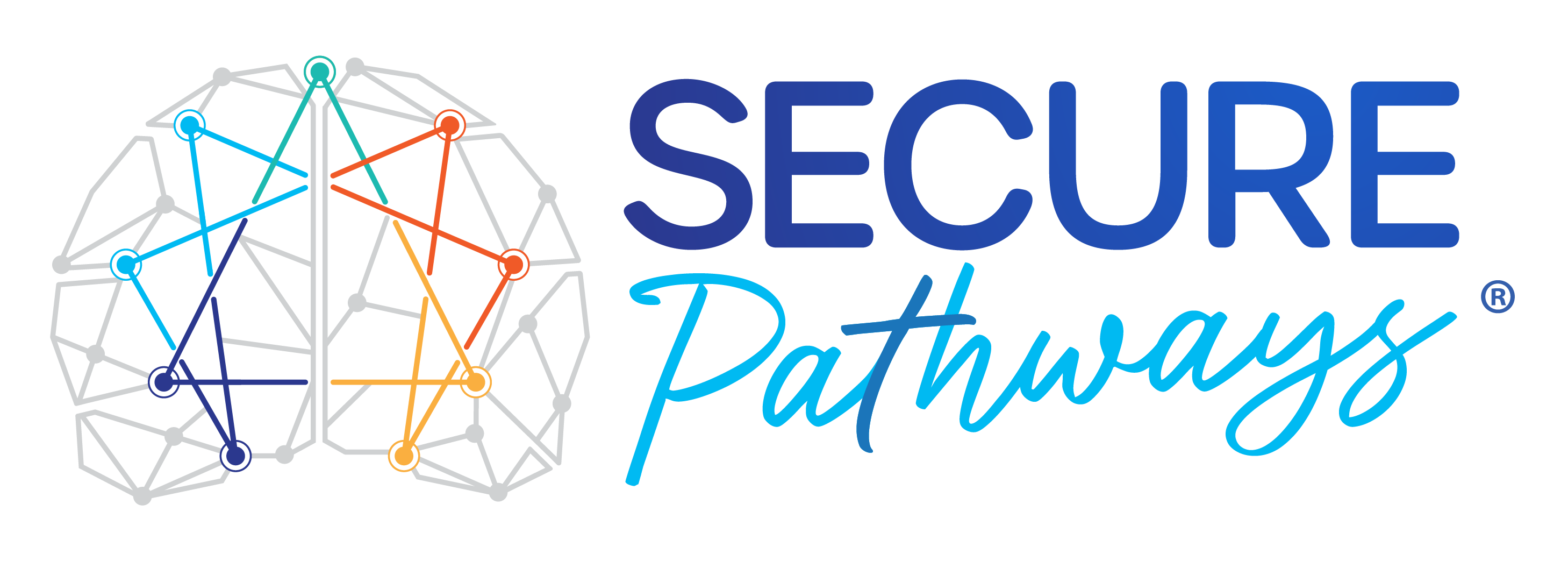Don’t miss my FREE resource that helps you FIND YOUR ATTACHMENT STYLE:
As we continue in the Parenting Patterns Series, we’re shifting from how we’re wired (our personality and Enneagram type) to how our early experiences shaped us.
I call this your hidden script because most of us don’t walk around thinking, “Ah yes, my attachment style is now activated.” We just react.
You might feel it as a gut sense:
- “I’ve got to handle this myself.”
- “I need to share all my reactions with someone.”
- “I’m fine…totally fine…everything’s fine.”
- “Why does no one ever show up for me?”
You may not know why you respond the way you do—but that doesn’t mean it’s random.This is where Attachment Style comes in.
The Hidden Script: What Is It, Really?
A script is the personal story you carry inside—shaped by your early relationships and life experiences—that quietly guides:
- how you see yourself
- how you see other people
- what you expect in moments of stress or connection
It’s the internal message you absorbed about:
- how the world works
- what you have to do to stay safe, loved, and connected
Attachment Theory calls this script an Internal Working Model.
You can think of it as an inner map of relationships.Your attachment style is the pattern you learned in childhood about:
- how to get your needs met
- how to ask for help (or not)
- how you handle emotions—yours and others’
- what you expect from the people who matter most
Most of us didn’t sit down and choose that pattern. It was formed over time by repeated experiences with the people who cared for us.
Three Dimensions of Attachment: Approach, Autonomy, and Affect
When we talk about attachment style, we’re really looking at a few key routes on your inner map. Traditionally there are two main dimensions; I’m adding a third because it shows up so clearly in parenting.
1. Approach – How You Move Toward Others
Approach is about how comfortable you are with closeness and asking for support. It includes:
- how easily you move toward people when you’re upset
- how safe emotional and physical closeness feels
- your willingness to be vulnerable
- your desire for others to comfort you
Some parents are quick to reach out when they’re struggling. Others feel they must pull it together alone or “be the strong one” no matter what.
2. Autonomy – How You Move on Your Own
Autonomy is about your comfort with independence and doing things by yourself. It includes:
- how confident you feel tackling things alone and trusting your own ideas
- whether you prefer to be independent
- your sense of agency (“I can figure this out”)
- how comfortable you are being alone
- your willingness to ask for help
Some parents enjoy working alone and figuring things out by themselves. Other parents feel very uncomfortable without “their people” around all the time.
3. Affect – How You Show (or Hide) Your Feelings
The third dimension I want us to consider is Affect—the short-term way you express your feelings to the world. It includes:
- how intense your emotions feel
- how contained (or not) your reactions are
- whether you tend to shut down, explode, or hover in the middle
- how comfortable you are naming and sharing emotions
Some of us are emotional “slow cookers”—feelings simmer under the surface for a long time. Others are more like pressure cookers—when the lid comes off, everyone knows.
We’ll explore Approach, Autonomy, and Affect more deeply in upcoming blogs. Then we’ll connect those dimensions to the four attachment styles and how they show up in your parenting.
How Hidden Scripts Develop
So how did this script get written in the first place?
From the time you were tiny, the way your parents or caregivers responded to you—consistently, over time—was shaping your brain.
- When you cried, did someone usually come?
- When you were scared, did you get comfort—or criticism?
- When you were excited, did anyone delight in you or were you “too much”?
These repeated experiences formed patterns in your brain about:
- whether people are reliable or not
- whether your feelings are welcome or a problem
- whether you are worthy of care and comfort
Your attachment style is that pattern. It becomes your automatic setting for how you trust and relate to others, especially under stress or intense emotions.
And yes, it shows up very clearly in your parenting:
- when your child melts down in the grocery store
- when your teen shuts their door and goes silent
- when your child wants help with something you think they “should” do alone
You might:
- jump in and rescue
- shut down and disconnect
- lecture and try to fix
- over-explain and over-apologize
- or some combination, depending on the day (and the level of caffeine)
These responses are not random. They’re deeply connected to your hidden script.




Good News: Your Past Doesn’t Seal Your Fate
Now, before you:
- freak out that your kids are doomed because your childhood was hard
– or –
- become complacent because your childhood was pretty good
…take a deep breath.
Your past does not seal your fate.
The script you developed with your parents can be revised.
Your brain is capable of change. This is called neuroplasticity—the brain’s God-designed ability to form new pathways through repeated, healthy experiences.
That means:
- new patterns of relating can be learned
- old reactions can soften
- different choices can become more natural over time
Your history is not set in stone. It is redeemable:
- through God’s healing presence
- through secure, trustworthy relationships
- through your willingness to grow
Because God is the perfect parent, anyone can develop a secure attachment to Him. And as you grow in security with God, you can grow in security with your children.
You are not stuck in the story you’ve lived so far—because God is in the business of rewriting futures.
Why This Matters for Parenting
Your attachment style doesn’t make you a “good” or “bad” parent. It simply:
- explains some of your automatic reactions
- highlights where it’s easier for you to stay present
- reveals where it’s harder to be calm, connected, and curious
For example, you might notice that:
- you get anxious when your child pulls away emotionally
- you feel irritated when they seem “too needy”
- you tend to stay busy so you don’t have to feel
- you shut down when your child gets intense or angry
Seeing these patterns with gentle honesty is not about shaming yourself. It’s about understanding what’s going on underneath so you can invite God into those places and respond differently.
This is where the Attachment Mapping Tool comes in.
A Practical Next Step: The Attachment Mapping Tool
To help you explore your own hidden script, I created a FREE Attachment Mapping Tool.
This simple, practical guide will help you:
- look at three core dimensions of your attachment—Approach, Autonomy, and Affect
- rate where you tend to land on each dimension
- see how those three areas combine into a pattern
- identify which attachment style you might lean toward
You can use it:
- for your own personal reflection
- to talk with a spouse, trusted friend, or counselor
- as a starting point to understand why certain parenting moments feel so hard
You don’t have to figure this out alone or guess based on vague descriptions. The tool gives you a clear way to plot your patterns and start noticing how they show up in your everyday life as a parent.
Think of it as a GPS for your inner world—helping you locate where you are so you and God can decide together where to go next.
Don’t miss my FREE resource that helps you FIND YOUR ATTACHMENT STYLE:
Reflect: Looking Back So You Can Move Forward
Take a few minutes this week and think about important moments with each of your parents or caregivers (if both were involved in raising you). Include both positive and painful memories.
You might journal or pray through questions like:
- When I was upset as a child, how did my mom/dad/caregiver usually respond?
- What did I learn from them about asking for help?
- How did they react to my big emotions—anger, sadness, fear, joy?
- What did I learn from them about what children deserve or don’t deserve?
- How might those messages still be affecting how I respond to my own children today?
You don’t have to have all the answers. The goal is gentle curiosity, not harsh judgment.
Encouragement: God as Your Secure Base
Regardless of what your relationship with your parents was like, God offers to be your secure base and safe haven.
Depending on your attachment style, God’s promise of constant presence might:
- sound wonderful, but you’re not sure how to actually connect with Him
- sound a little uncomfortable, like He might get too close
- sound unreliable, because people have let you down before
Wherever you are, God’s heart for you is steady:
“So do not fear, for I am with you;
do not be dismayed, for I am your God.
I will strengthen you and help you;
I will uphold you with my righteous right hand.”
—Isaiah 41:10 (NIV)
He is not asking you to parent perfectly. He is inviting you to parent with Him—grounded in His love, guided by His wisdom, and strengthened by His presence.
If you have questions about your attachment style or would like to talk about how it might impact your parenting, I’d be honored to connect. You can schedule a free 15-minute virtual Connection Call.
Or, if you’re ready for a deeper dive into attachment and parenting, you can book a parent coaching package here.
You are not alone, and you are not stuck. God is at work in your story—and in your child’s—one small, connected moment at a time.



